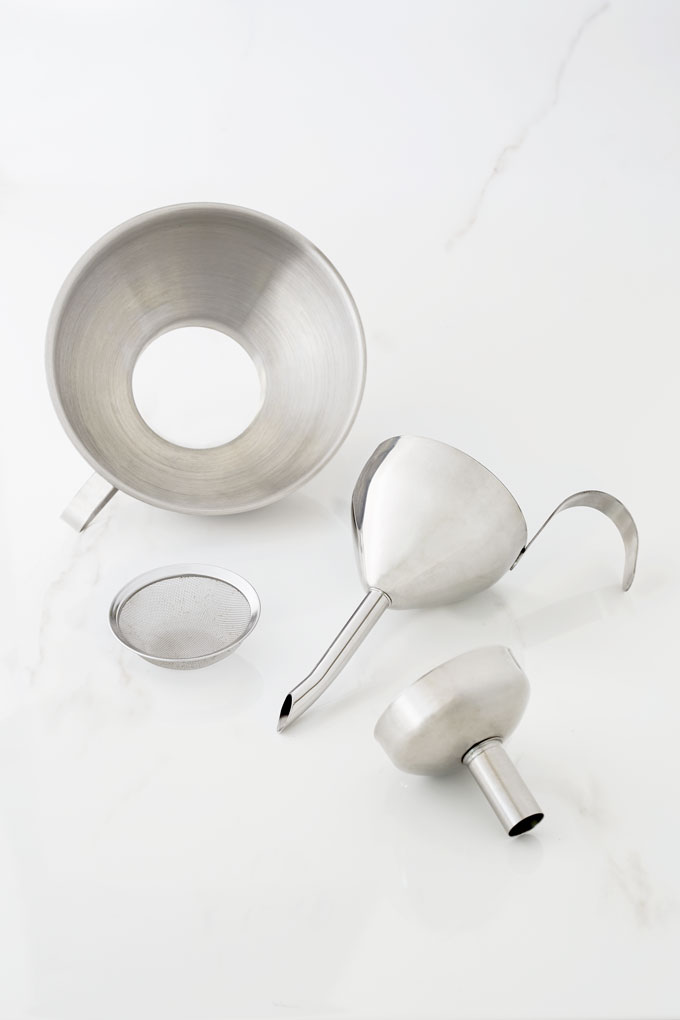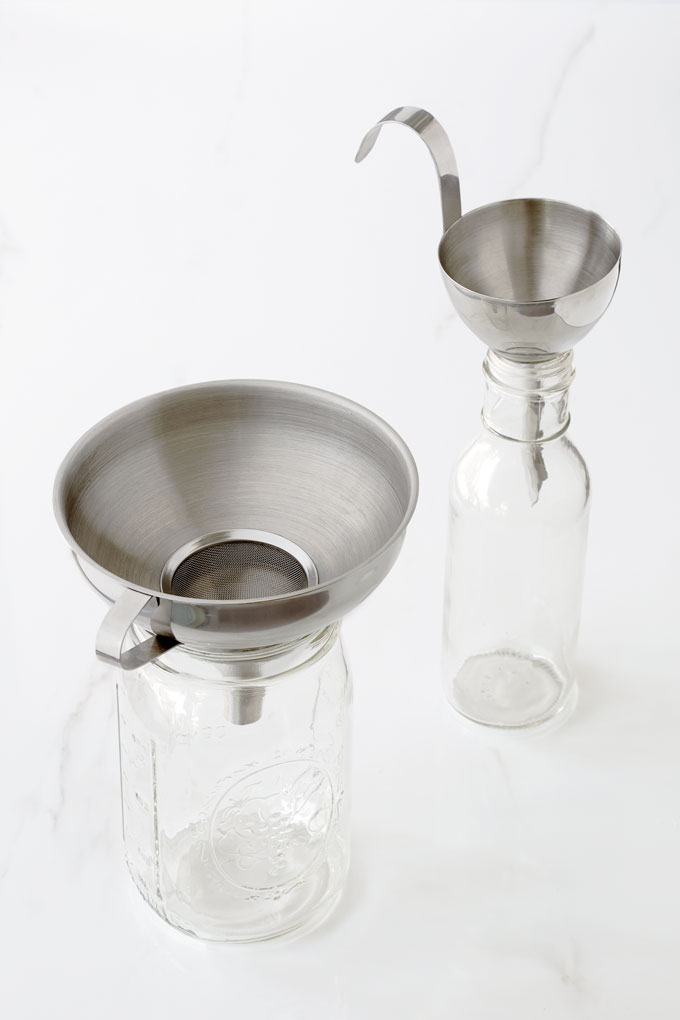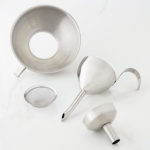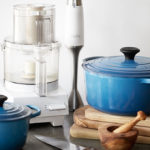

Toss That Plastic Funnel & Upgrade To Professional Grade Stainless Steel
Made of commercial grade stainless steel, these funnels from Norpro can be used with hot and acidic liquids without any concern about leaching of chemicals into your precious homemade bone broth, kombucha or canning projects. The wide mouth funnel with wide spout are even great for transferring bulk spices, herbs or grains into glass jars!
The narrow funnel comes with a mesh strainer, which also fits the wide mouth funnel with spout. Between these two funnel sets, you’ll be able to safely and effectively pour liquids into any size bottle or jar, while straining out debris. There’s nothing better than grit-free, golden broth.
This is not a big ticket item, but it’s truly an indispensable kitchen tool. We often think we can get by with what we already have when it comes to less considered tools like this. I certainly made do with my plastic funnel for a shockingly long time. Which basically meant that I didn’t use it for the things it’s most useful for, like transferring broth! My silly plastic funnel came out for the occasional cold liquid transfer, now I use these funnels all the time.
Why you should toss your plastic funnel
Long before it became a popular topic in the media or the BPA scandal came to light, I stopped using plastics to store my food or for any other kitchen use. It was a no-brainer – a matter of exercising common sense. If you’ve ever taken a look at a used plastic food container you’ll probably remember it looking worn down. That’s because it doesn’t take much to realize that plastics are volatile and unstable materials. With the naked eye you can recognize that plastics are simply not solid materials like steel or glass.
The minute plastic comes into contact with food, the food can be contaminted with a host of leaching chemicals. When food is hot or acidic like tomatoes or vinegar, you’re putting plastic into contact with solutions that effectively break it down. Although plastic looks like a material independent of the food, on a microscopic level it’s commingling with the food or liquid!
What’s wrong with a little commingling?
When it comes to plastics, a little commingling means that your food will be contaminated with toxic chemicals. This goes for soft plastics like cling wrap and hard plastics alike, BPA free of otherwise. A 2011 study published in Environmental Health Perspectives found that all plastics, including “BPA free,” release estrogen mimicking chemicals when coming into contact with food or liquids. In fact the “BPA free” plastics released higher amounts of estrogenic compounds than plastics made with BPA.
This study focused specifically on the leaching of hormone-like chemicals and found that 70% of plastics tested released these chemicals even in the safest conditions. Once heat, dishwashing, sunlight, or worst of all, microwaving was applied; in these conditions the exposure rate rose to 95%.
Although this study has somewhat suspiciously since been removed from their database, there’s a growing number of studies linking toxins in plastics to myriad health problems. Truly, you don’t need studies to illustrate the obvious. Synthetic chemicals are not safe for human consumption. That’s the best way to understand the relationship between plastics and food. Store food in plastic, use plastic cutting boards, etc, and you will be eating plastic.
Stay tuned! A more in depth post specifically on this topic is coming soon.




